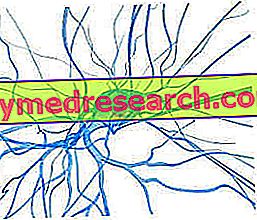Definition
The encopresis is a disorder characterized by the involuntary and repeated emission of feces.
This form of fecal incontinence recognizes various causes.
If it occurs in the earliest years of life, encopresis is not considered a real organic disorder. However, if it persists after four years of age, the involuntary loss of faecal material may indicate the presence of diseases of the digestive system (eg Hirschsprung's disease and celiac disease) or psychological problems.
Primary and secondary encopresis
The encopresis can be divided into two forms:
- Primary : occurs when sphincter control has never been acquired by the child; it may depend on several factors, ranging from laziness to the need for more time to learn to hold and consciously release feces.
- Secondary : the child begins not to hold back the feces, despite having shown that he can do it, for a certain period, adequately.
Possible causes
The factors that can intervene in the genesis of the encopresis are:
- Anatomical : fissures, anus or rectum stenosis, Hirschsprung's disease, incontinence connected to neurological disorders, constipation and various disorders that make the defecation painful.
- Food : low water intake, dietary fiber deficiency, intolerance or excessive nutrition.
- Psychological : emotional conflicts with parents, incorrect training in the use of the potty (too early, aggressive or absent), fear or idiosyncrasy of the toilet, anxiety and psychosomatic stress.
Any pathological process that results in chronic constipation can cause encopresis. If the retention of fecal material lasts over time, it can determine, in fact, a dilatation of the rectum and sigma, which leads to changes in the reactivity of muscles and nerves of the intestinal wall. Therefore, the child loses the urge to defecation. This results in the involuntary passage of soft and liquid stools around the retained mass.

Possible Causes * of Encopresis
- Anxiety
- Celiac disease
- Lactose intolerance
- Food intolerance
- Hirschsprung disease
- Anal fissures
- Constipation



